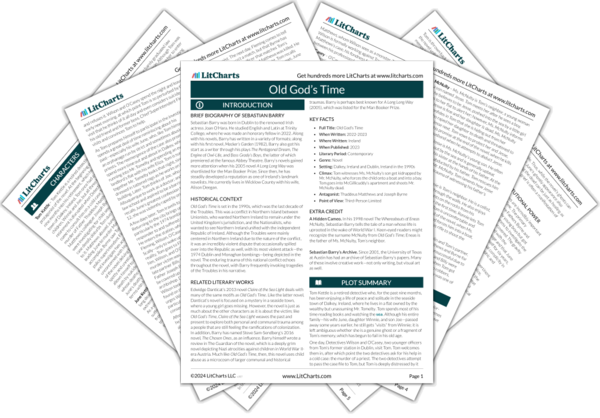Tom and June’s shared experience of abuse at the hands of priests is an important point of bonding for them. Although abuse in the church is often isolating due to it being covered up by the powers that be, Tom and June are able to connect with each other due to this trauma and isolation. Even so, June’s fear that Tom will not be able to love her knowing what she’s endured illustrates just how profoundly her abuse has affected her view of herself, causing her to believe she is broken and unlovable.
